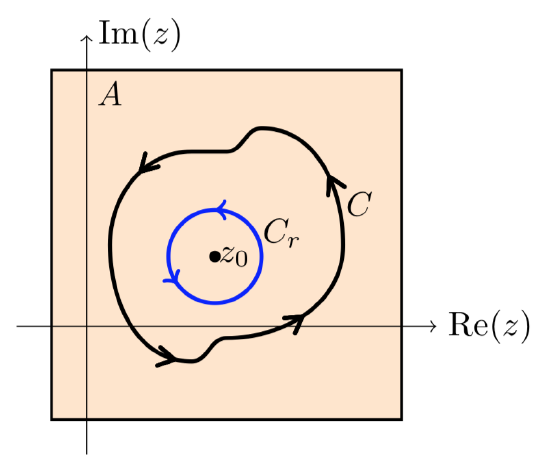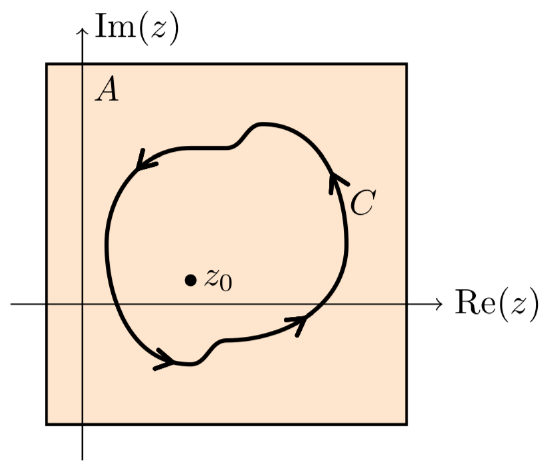5.3: Proof of Cauchy's integral formula
( \newcommand{\kernel}{\mathrm{null}\,}\)
Useful theorem
Before proving the theorem we’ll need a theorem that will be useful in its own right.
Suppose that A is a simply connected region containing the point z0. Suppose g is a function which is
- Analytic on A - {z0}
- Continuous on A. (In particular, g does not below up at z0.)
Then
∫Cg(z) dz=0
for all closed curves C in A.
- Proof
-
The extended version of Cauchy’s theorem in the Topic 3 notes tells us that
∫Cg(z) dz=∫Crg(z) dz,
where Cr is a circle of radius r around z0.

Since g(z) is continuous we know that |g(z)| is bounded inside Cr. Say, |g(z)|<M. The corollary to the triangle inequality says that
|∫Crg(z) dz|≤M (length of Cr)=M2πr.
Since r can be as small as we want, this implies that
∫Crg(z) dz=0.
Using this, we can show that g(z) is, in fact, analytic at z0. The proof will be the same as in our proof of Cauchy’s theorem that g(z) has an antiderivative.
Proof of Cauchy’s integral formula
We reiterate Cauchy’s integral formula from Equation 5.2.1: f(z0)=12πi∫Cf(z)z−z0 dz.

Proof. (of Cauchy’s integral formula) We use a trick that is useful enough to be worth remembering. Let
g(z)=f(z)−f(z0)z−z0.
Since f(z) is analytic on A, we know that g(z) is analytic on A−{z0}. Since the derivative of f exists at z0, we know that
limz→z0g(z)=f′(z0).
That is, if we define g(z0)=f′(z0) then g is continuous at z0. From the extension of Cauchy's theorem just above, we have
∫Cg(z) dz=0, i.e. ∫Cf(z)−f(z0)z−z0 dz=0.
Thus
∫Cf(z)z−z0 dz=∫Cf(z0)z−z0 dz=f(z0)∫C1z−z0 dz=2πif(z0).
The last equality follows from our, by now, well known integral of 1/(z−z0) on a loop around z0.

